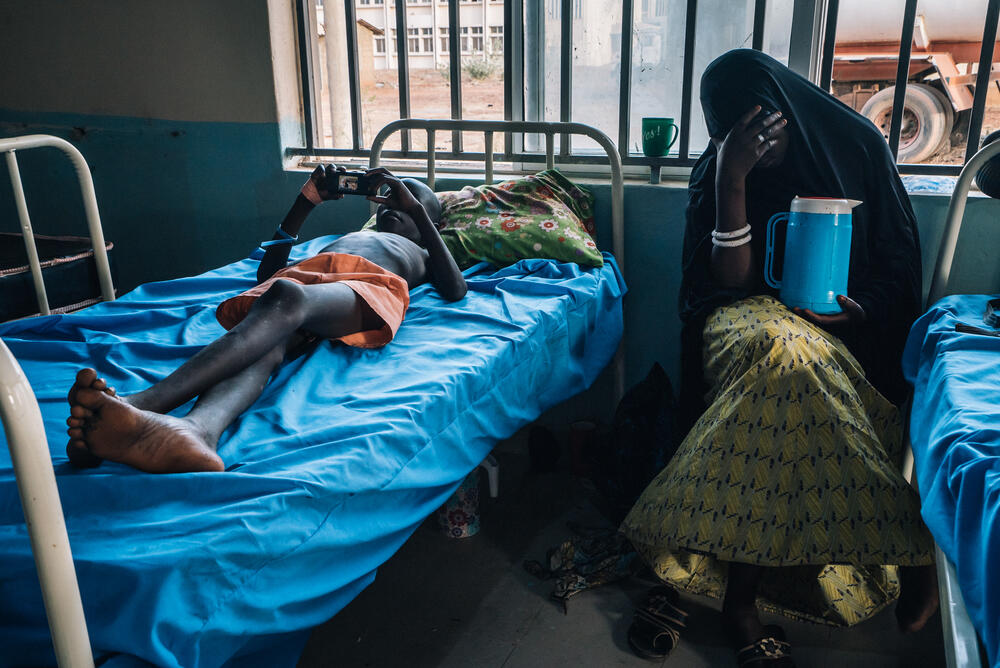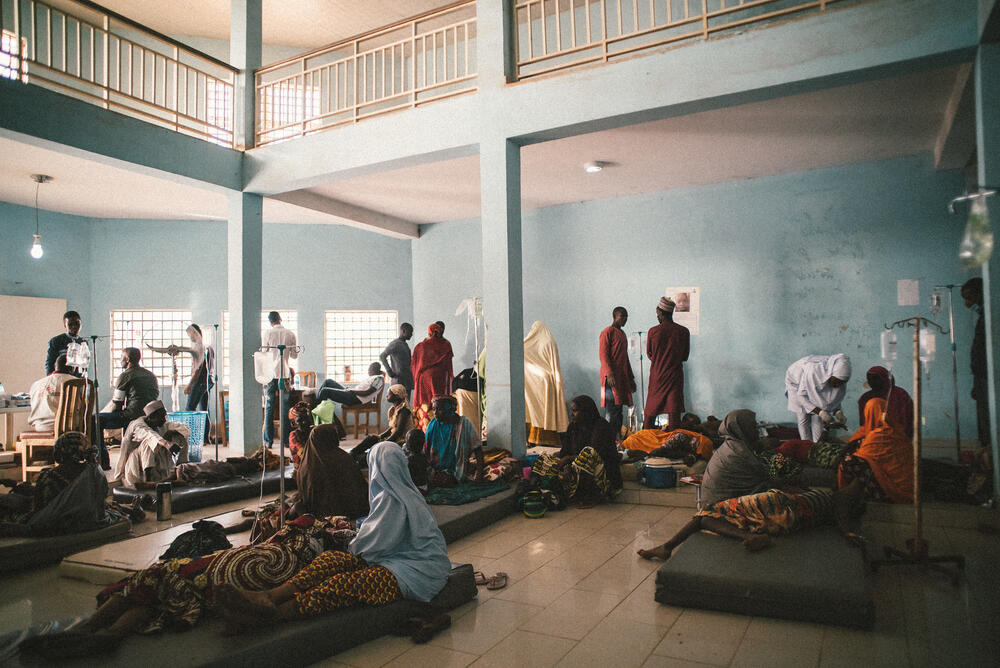Nigeria: Fighting the worst meningitis C outbreak since 2008
Thousands of men, women, and children in northern Nigeria have been affected by a meningitis C outbreak, reportedly the largest to hit the country in the past nine years.
These teams treat challenging cases in a difficult environment.
“A few days ago a nine-year-old boy was brought in unconscious and with severe meningitis,” recalls Caroline Riefthuis, an MSF nurse in Sokoto.
Almost six months after the first cases were recorded in Zamfara State, Nigeria’s Ministry of Health (MoH) is still struggling to fight this epidemic in seven states of the country.
MSF has supported the health authorities with surveillance and case management in the most-affected locations since February when the outbreak was officially declared.
However, the slow reaction system of the country and a global shortage of vaccines have hampered the response.
On 15 April, MSF set up a 200-bed treatment centre in Sokoto Town, followed by a 20-bed facility in Anka, Zamfara.
In these locations, MSF’s Nigeria Emergency Response Unit (NERU) works intensively to provide free, high-quality medical care and reduce mortality rates as much as possible.
“He received treatment for five days and recovered, but unfortunately we found out that he had become deaf and blind – side effects of severe meningitis.”
This little boy is one of 614 patients treated in Sokoto Mutalah Mohamad Hospital since April when MSF took over the management of the center from the MoH due to a lack of supplies and qualified staff to run it.
In Anka General Hospital, 137 patients were admitted since the beginning of the outbreak. Most are between five and 20 years old.

Help us prepare for the next emergency
Tackling the outbreak
In addition to the staff working in the treatment centres, 11 MSF surveillance teams visited health facilities to determine the origins of new cases in Sokoto, Zamfara, Yobe, Niger and Kebbi.
These visits also allowed MSF to implement additional activities, such as health promotion, to increase community awareness of the signs and symptoms of meningitis and active case finding.
At the end of April, the Nigerian MoH reported 9,646 suspected cases of meningitis C, with a total of 839 deaths since late 2016. And on 1 May, MSF was finally able to join a vaccination campaign launched by the health authorities in Sokoto.
In the three most-affected Local Government Areas (LGAs), 25 MSF teams vaccinated approximately 850 people per day for seven days to reach a target population of 148,000 people – of a total target of 800,000 – between the ages of one and 20.
An additional campaign with a target population of nearly 130,000 will start later this month in the four most-affected LGAs of Yobe State.
Late response and insufficient vaccine supplies
Although these vaccination campaigns are a crucial step to stop the spread of the disease, MSF has concerns regarding the late response to the crisis in a country where meningitis epidemics are not rare.
“The national early warning system and timely response needs to be strengthened, and the implementation strategy better-defined, to reduce the impact of the outbreak as much as possible,” explains Philip Aruna, MSF Country Manager in Nigeria.
Even more worrisome is the global shortage of meningitis C vaccine, which contributed to the delayed response and increased mortality rates in Nigeria.
The outbreak is spreading fast and we are concerned because there are not enough vaccines to cover the affected population.
“The outbreak is spreading fast and we are concerned because there are not enough vaccines to cover the affected population,” says Aruna.
In Sokoto, for example, three million vaccines are required to launch a mass campaign, but only 800,000 were available.
This insufficient quantity only allows for a reactive campaign, which requires teams to act fast to prevent the disease from spreading further.
To address these logistical challenges and reduce the mortality rates, MSF insists that treatment centres be decentralised so that all people affected by the disease, even those in remote areas, can access free, quality healthcare and the right tests to quickly confirm cases and prevent misdiagnoses.
It is crucial that adequate prevention measures be put in place to avoid another delayed response when the next meningitis outbreak inevitably occurs.
MSF in Nigeria
Nigeria With over 190 million inhabitants, Nigeria is the most populous country in Africa.
Nigeria also has one of the fastest-growing economies, which is based primarily on the petroleum industry. However, a decade-long conflict has devastated the northeast of the country. Thousands have been killed and nearly two million people have been uprooted since fighting broke out between the military and non-state armed groups.
Médecins Sans Frontières/Doctors Without Borders (MSF) has been responding to disease outbreaks and emergency health needs in Nigeria for many years, focusing on maternal and paediatric healthcare throughout the country and scaling up our activities in the northeast as vast numbers of people caught up in the conflict depend on aid to survive.

